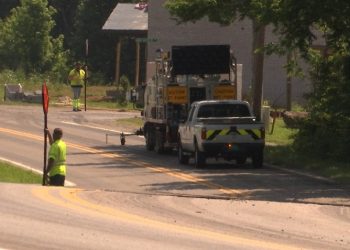Knoxville, Tenn.— Victim advocacy organizations across Knoxville are bracing for significant challenges as federal funding for victim support programs continues to shrink. Local agencies, which rely on federal grants like the Violence Against Women Act (VAWA) and the Victims of Crime Act (VOCA), are concerned that reduced funding will severely impact their ability to provide critical services to survivors of domestic violence, human trafficking, and other forms of abuse.
Michelle Clayton, Executive Director of the Knoxville Family Justice Center (KFJC), expressed deep concern over the potential loss of federal funding, which plays a crucial role in supporting the center’s work. The KFJC, along with other local agencies, uses these funds to offer immediate assistance to victims of abuse. Clayton noted that a reduction in federal funding would directly affect the state’s ability to pass funds to local organizations, leaving them without the necessary resources to serve survivors across the community.
“If something was to happen to that program, that would directly impact the state’s ability to give us those pass-through funds and for us to provide services to our survivors and to various victims across Knox County,” Clayton said.
While federal funding is still in place for now, Clayton emphasized the potential ripple effects if these programs were slashed. The KFJC’s partners also rely on these funds, and any cuts would affect not just the center, but a network of organizations that work together to support victims.
“Our partners also receive those exact same funds and so if they’re impacted, we are impacted,” Clayton said. “And that is why it’s so important for people to find a local organization like the Family Justice Center that really resonates with you and provide them funds locally, give to them directly.”
Other local organizations are also feeling the strain. The Community Coalition Against Human Trafficking has projected a 60% reduction in funding through VOCA this year, which will significantly hinder their ability to combat human trafficking. Similarly, the YWCA reported that a recent federal funding freeze temporarily halted some of their financial support, creating uncertainty around their operations moving forward.
Clayton added that while Knoxville is known for its community spirit, the growing challenges, particularly in the areas of human trafficking and domestic violence, require more support. With interstates passing through the area, human trafficking is on the rise, and the need for victim services is increasing as well.
“When women are in crisis, when victims are in crisis, survivors are in crisis, they come to the Family Justice Center and we need to be able to provide them what they need in that moment,” Clayton said. “And if we do not have the federal or state funding to do those things, and we’re going to have to rely only on the goodwill of the people of Knoxville.”
In light of the funding challenges, Clayton is urging the Knoxville community to take proactive measures to support local victim advocacy groups. The YWCA also emphasized the importance of advocating for full funding to ensure that victims have access to the critical services they need to stay safe and begin rebuilding their lives.
As victim advocacy groups continue to navigate an uncertain funding future, the need for community support and advocacy for sustained federal funding has never been more critical. The survival of these essential programs hinges on both local generosity and continued governmental support to ensure the safety and well-being of Knoxville’s most vulnerable populations.













